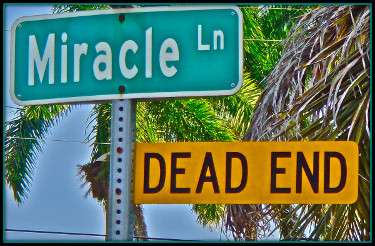The Art of Public Speaking: D’You Know what I Mean?
Making Your Words Mean More than Just Hot Air!
You make your way to the center of the stage while a stream of sweat makes its way down your forehead as you frantically look for a tissue. You nervously start to speak, all the while, your hands are shaking and your palms are sweaty. At that moment, you’re wondering two things, whether the audience sitting in the front row can hear your knees knocking and, what the hell is going on?…it’s called stage fright and is a common sight in public speaking. Now imagine yourself walking up the same podium and speaking with total clarity, confidence and authority. Which one sounds better?
No matter what your profession, keeping ahead in the fast paced world in which we live in today will mean having to develop certain key skills, and one of those key skills is the ability to speak in public or public speaking. People who attend workshops and seminars or any public gathering, for that matter, come from all walks of life. It is important to remember that not everybody in the audience is going to agree with your utterances. The fact is that half of the crowd in the audience have already made up their mind as soon as you introduced yourself, be it good or bad, which means, what you really need to focus on is, getting the other half (who doesn’t think you’re up to scratch) on your side.
For most folks, sadly, this is easier said than done, because most of us aren’t born orators like Obama, Kennedy or Churchill. The following lines are going to be for the person who is not necessarily interested in changing the course of history with their eloquence, but just wants to get through their fifteen minutes, without the deer in the headlights look on their face.
And Now… the Eight Things You Need to Do:
The stage doesn’t need to feel like the hottest place in hell. Contrary to popular belief, the art of public speaking and the ways in which one should handle those sorts of situations can be taught. The only difference will be, when the going gets tough, are you going to jump in the boat and grab an oar or just do a disappearing act? The following are some tips just in case you wish to stick around.
Be Yourself:
To be yourself is all that you can do; I know, you’ve probably heard that somewhere, in a song perhaps. But it couldn’t be more true. Sure you would love to impress everyone out there with your pitch perfect public speaking skills and that killer joke that just cracked everyone in the hall up but, it is important to be yourself when you do that. Public speaking is all about being true to yourself. If you are honest and believe in the words that are coming out of your mouth, it will show, and your audience will recognize that.
Lighten Up:
It pays to lighten up, incorporating humor in your public speaking can actually add rather than distract the audience. Having a sense of humor pays off, but only when used appropriately, (that means no midget jokes). Also make sure the joke is on you and not on anyone else. As far as public speaking goes, it’s always a good idea to break the ice before you get started with addressing the people. Using humor is a great way to lighten up the mood and put the audience at ease.
Tell Stories:
Some people seem to always know the right things to say. How many times have we noticed that? They do that by housing a critical point they want to make in an interesting story. The trick is, if people remember the story they will get the point and if the story is interesting and inspiring enough, it can be passed on, creating a common experience. That’s the same reason why stories strengthen culture, religion and traditions. So, put in a story, or two, whenever you speak in public.
Make a Point without PowerPoint:
Using tools, such as PowerPoint, teleprompters and other visual aids are effective ways of getting a message across, especially in presentations. But sometimes it’s just better to leave all the slides, charts and definitions at home. Don’t get me wrong, I have nothing against PowerPoint, it’s just that some situations do not require it in order to connect with an audience. Remember that public speaking relies mainly on auditory sense, so when it comes to the audience grasping a message and getting the point focus more on the words which you are going to use whenever you speak in public.
Get Away from the Podium:
How many times have we seen people standing in the exact same place for hours on end, while delivering a speech or presentation? Public speaking is all about the art of balancing between attention and connection with the audience. While you might think that standing in one place will keep the audience’s attention from having to follow you as you take a stroll on stage, getting away from the podium and making your way to the audience will allow you to make a connection with them. So, working out a balance between attention and connection is key, and you can make that out according to the audience in front of you.
Don’t Write a Speech…Use Trigger Words Instead:
Most people believe that writing down the entire speech and trying to commit it in memory will help in their public speaking escapade. Well, it is true, but not all of it. The key to great public speaking is to first write down a speech, and make out specific words that you use to make a point. Then make a list of these “trigger words” and take them to the podium with you.
It’s Okay to Get Your Tongue Tangled Up:
Let’s face it, it happens to the most seasoned public speakers, even presidents, so don’t be so hard on yourself. If you have made a mistake or got your words jumbled up, don’t panic, chances are your audience didn’t even notice and even if they have noticed, correct the information and just keep going. After an awful experience, most people start to dread public speaking, but that will only make things worse, and with the passage of time it will only build a feeling of apprehension against public speaking.
Read a Lot:
Lastly, read, read a lot. If you wish to become a great (or higher than average) public speaker, then you will have to immerse yourself in the texts of great public speakers. Listen to their public speeches and make out the pauses, metaphors and crescendos that have made those men and women a part of history.
Bottom Line:
Public speaking or speeches given to an audience have a profound effect on the listener, provided you get them right. A speech given well can give hope, lift hearts, give courage, inspire others and more importantly, refine one’s own character.
For many people, the thought of having to speak in public is enough to fill them with dread, but it doesn’t have to be that way. By using these simple and easy steps, you will be well on your way to becoming an expert speaker no matter how large the crowd. While you use these tips to help you in adapting to different situations, you will find other ways of handling different audiences along the way. Always remember, words are sacred and need respect; if you can take the right words and use it at the right time, you can nudge the world. Anyone can nudge the world if their heart is in the right place.



